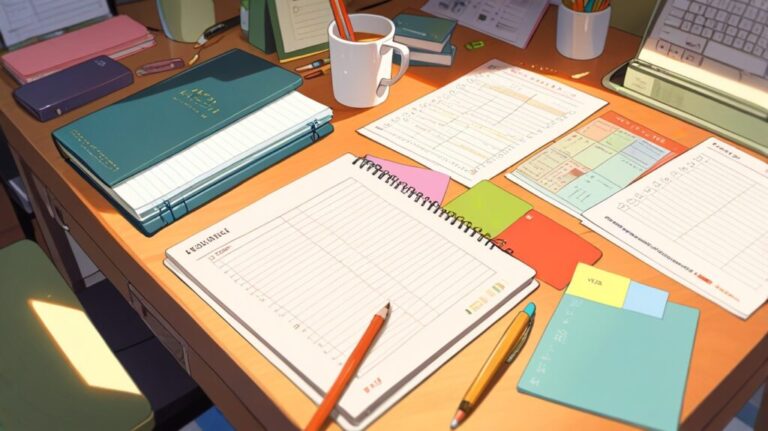What is the best time of day to study effectively?
What Is the Best Time of Day to Study Effectively?
Ah yes, the question we all ask at some point—usually while sitting in front of an open book, halfway through a yawn, wondering why our brain feels like mashed potatoes.
“When is the best time to study?”
Is it early in the morning when everything is quiet?
Is it in the afternoon when your brain’s finally awake?
Or is it that mysterious late-night window where you suddenly become a genius for 30 minutes before crashing?
Well, here’s the truth, and you might hate me for this:
There is no one-size-fits-all answer.
But don’t close the tab—I’m not leaving you hanging. Because while there’s no universal “best” time for everyone, there is a best time for you.
Let’s figure it out, together.
First Things First: Why Timing Even Matters
Your brain isn’t a machine. It has rhythms, energy cycles, moods (yes, moods), and patterns. The key to studying effectively is working with those natural rhythms, not against them.
When you study at the right time for your brain:
- You retain more information
- You stay focused longer
- You feel less tired
- You don’t have to re-read the same sentence 12 times
So yeah. Timing matters a lot more than we think.




The 3 Most Popular Study Times (and What They’re Good For)
Let’s break this down into real-life energy zones.
🕰 1. Morning: 6 AM – 10 AM
Who it’s great for: Early risers, planners, people who like a quiet start to their day.
Morning studying has this clean, focused energy to it. Your brain is fresh (assuming you slept), distractions are low, and the day hasn’t had time to fall apart yet.
Why it works:
- Your memory is sharper early in the day
- Logical thinking and focus tend to peak in the first few hours after waking
- You feel productive AF checking stuff off before lunch
Best for:
- Reading-heavy tasks
- Reviewing notes
- Planning or organizing your study day
Pro tip: If you’re gonna study in the morning, try starting with something small and easy to get momentum. Don’t go straight into rocket science on an empty stomach.
☀️ 2. Afternoon: 12 PM – 4 PM
Who it’s great for: People who need time to wake up mentally, or those who are more alert later in the day.
Afternoons get a bad rep because of the post-lunch slump, but they’re actually great for doing. Once your body’s fully awake, your energy stabilizes, and your brain is warmed up from the morning, this can be a power window for productivity.
Why it works:
- Your alertness and ability to stay on-task are solid
- Creativity tends to peak slightly after noon
- You’re more awake and less stressed than in the morning
Best for:
- Practice questions
- Problem-solving
- Group study or brainstorming
Pro tip: If you feel sluggish after lunch, take a quick walk or do 5 minutes of light movement before you start. It helps. A lot.
🌙 3. Evening/Night: 7 PM – 11 PM
Who it’s great for: Night owls, deep thinkers, and people who feel more creative after dark.
Let’s be honest—some people just come alive at night. The world gets quieter, your responsibilities wind down, and there’s this kind of chill focus that settles in.
Why it works:
- Your creative brain often kicks in when the pressure’s off
- If your day’s been chaotic, night gives you personal space to think
- You’re less likely to get interrupted (unless you have siblings, in which case… good luck)
Best for:
- Reviewing what you learned earlier
- Creative tasks like writing or brainstorming
- Solo studying or reflecting
Pro tip: Don’t pull all-nighters. Seriously. Nothing you study at 3 AM is going to stick. Sleep is what turns short-term memory into long-term memory. You need it.
So… What’s the Best Time for You?
Here’s where you stop listening to everyone else and start listening to yourself.
Ask:
- When do I feel most alert during the day?
- When am I least distracted?
- When do I get stuff done without feeling forced?
- When do I feel most motivated or creative?
Start tracking your energy and focus levels across the day for a few days. You’ll start to see a pattern. Once you find it? That’s your golden study zone.
And remember: You can have more than one good time!
Maybe mornings are good for reading, afternoons for practice, and evenings for reviewing. Mix it up based on how your brain feels. You’re not locked into one slot.
Bonus Tips to Boost Focus (No Matter When You Study)
- Use the Pomodoro method (study 25 mins, rest 5). It’s magic.
- Hydrate. Dehydrated brains don’t focus.
- Keep your study space clean and your phone out of arm’s reach.
- Avoid multitasking. Seriously. One thing at a time.
- Set small goals. Break big tasks into little wins—it helps you stay on track.
Final Thoughts
The best time to study isn’t about what some productivity blog says. It’s about tuning in to your brain’s rhythm and building a study habit around that.
You don’t have to be a 5 AM warrior. You don’t have to be a night owl, either. You just have to find the windows where your mind feels clear, alert, and present. That’s where the real studying happens.
So whether it’s morning, noon, or night—when you find that time?
Protect it like it’s your mental gym.
Train your brain. Build focus. Watch your progress stack up.
And don’t forget to rest. You’re not a robot. You’re a human being doing your best.
Related Articles from EdgyThoughts.com:
Why Emotional Intelligence Is Finally Being Taught in Schools
https://edgythoughts.com/are-schools-teaching-emotional-intelligence-now
Is VR the Future of Classroom Learning?
https://edgythoughts.com/is-vr-the-future-of-classroom-learning
External Resource:
Explore more about peak performance rhythms:
Circadian rhythm – Wikipedia
https://en.wikipedia.org/wiki/Circadian_rhythm
How Do Catalysts Speed Up Reactions 2025
https://edgythoughts.com/how-do-catalysts-speed-up-reactions-2025/
What If the Sun Never Rose Again One Day?
https://edgythoughts.com/what-if-the-sun-never-rose-again-one-day/





